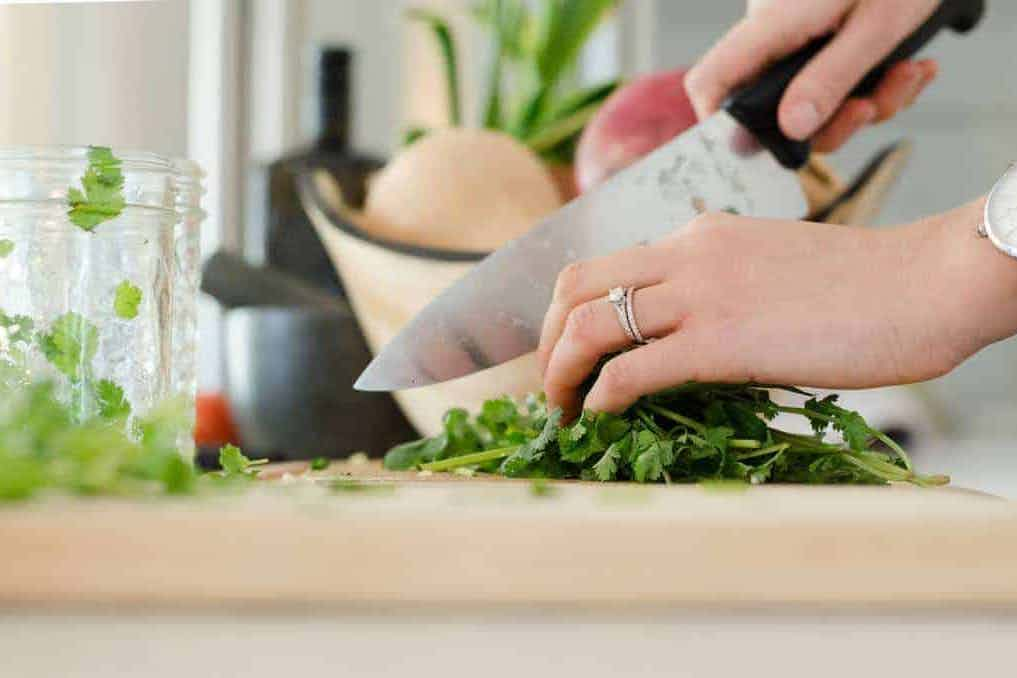Cooking is a fantastic hobby for beginners and experts alike. Rather than speeding through mealtimes, whipping up the most straightforward dish, or ordering in, why not take a little bit of extra time to prepare something delicious for yourself?
Why is cooking a useful hobby?
It’s easy to fall into a rut when it comes to mealtimes. We buy the same ingredients, follow the same recipes we know by heart, or buy the same pre-prepared meals for convenience. There’s nothing wrong with tried and tested food, but spicing up mealtimes can be very rewarding. Whether you now have more time on your hands or simply want to get creative in the kitchen, cooking is a hobby that really allows you to enjoy your hard work.
Cooking is also an excellent excuse for a get-together. Recent Covid-19 restrictions are limiting our daily contact, so you may not be able to show off your new recipes immediately. Still, you can start to hone your cooking skills now. That way, you’ll be able to create incredible dishes when you next host family or friends.
We spoke to Cookery Instructor and Demonstrator Anne Marie Lambert from Get Cooking! Anne Marie told Age Times: "Approaching cooking with a different frame of mind can help make the process enjoyable. Seeing it as a creative activity rather than just I need to get something on the table.
"Ensure you have basic store cupboard ingredients in so you are able to start cooking when you are in the mood for it.
"Start with something simple, omelette flavoured with fresh herbs or fresh tomato sauce for pasta. Soup with seasonal vegetables is a great way to play with different flavours. Order a seasonal vegetable bag to bring you out of your comfort zone. The unpredictability of its contents can inspire you to cook differently.
"Look through recipe books and put bookmarkers in. Take photos of those pages and put them in a folder on your phone. Next time you go to the supermarket, buy the ingredients for one of them. Choose a different recipe each week to build up your repertoire. Remember, particularly with savoury food recipes are a guide, you can deviate with different seasonal ingredients or replace fresh herbs with dried ones.
"Don't be put off by recipes that are not made for one. Your freezer is your friend but surely it is a great excuse to invite someone round or knock on a neighbour's door.
"Sharing food is a lovely gift and always appreciated. Food brings people together. So many people don't have the time to cook and food always tastes better when love has gone into it."
How do I start cooking as a hobby?
Time is a crucial factor when starting any new hobby. Luckily, you can find mouth-watering recipes whether you’re short on time or you have hours to spare. But developing culinary skills requires dedication. To progress, it’s best to plan ahead and set aside regular time to practice. We recommend browsing highly-rated cookbooks or online courses to help you hone your skills and create good cooking habits from day one.
Here are ten essential things to think about when you start cooking as a hobby:
- Start simple, and work your way up to more elaborate meals, step by step
- Learn how to chop
- Make sure you have the essential equipment
- Concentrate on timing
- Understand cooking lingo
- Play with flavours
- Get used to using timers
- Find honest taste testers
- Control kitchen mess
- Practice your recipes
If you have any other top tips for budding chefs, please leave us a comment below. Likewise, we’d love to hear about your favourite dishes!
How to clean as you cook
Number nine on the list above is so important for beginners that we wanted to add a little more detail. As a beginner, it’s easy to become overwhelmed by mess in the kitchen. You don’t want to spend hours cleaning after you’ve eaten. But, how can you possibly clean as you cook when you have four pans to watch, a table to lay, and an array of ingredients to add at different stages? Here are four handy hints to help you clean as you go, inspired by the Food Standards Agency:
1. Wipe up spills as soon as they happen
Staying on top of little spillages is an excellent way of keeping surfaces tidy and will create fewer tough, sticky patches to clean later. Additionally, this step is crucial when handling raw food. The Food Standards Agency recommends disinfecting areas with these types of spillages immediately.
2. Clean between tasks
If you’re following a recipe with many steps, it’s easy to plough through to the end without pausing. Taking time to wipe surfaces, the cooker, and even wash a few dishes in between major steps will help you to keep your kitchen sparkling. You can also keep a designated area clear for final food assembly, which may help you to stay calm while you dish up!
3. Throw away packaging
At best, packaging creates clutter. At worst, it can cause contamination. Having your bin handy means you’re more likely to throw away or recycle excess packaging on the go.
4. Do the washing up
This might be the hardest step for novice cooks. The best way to avoid a mountainous pile of utensils and pans is to wash up in several stages. If you have five minutes before you need to put the next ingredient in the pan, you can use that valuable time to start scrubbing. Washing up as you go will also keep your surfaces clear, which is extremely valuable for those with smaller kitchens.
What is an easy thing to cook for beginners?
There are two main factors to take into consideration when deciding on a beginners’ cooking project. First, what are your favourite meals? If you cook something you like rather than something that simply looks easy, you’re more likely to enjoy the experience. The key is finding the right balance.
Second, what do you already know how to cook? If you already have some basic cooking skills, then you can use these as the foundations for more advanced dishes. For example, you may be a culinary beginner who has mastered cooking potatoes through years of practice. Why not use these skills to perfect an exotic dish?
Gratin is a technique used to create a delicious brown crust, and French potato gratin only requires a few key ingredients. This simple BBC recipe breaks down the technique step by step. Likewise, Spanish potato tortilla (tortilla de patatas) is a gorgeous but straightforward traditional omelette recipe. Jamie Oliver has created his own version with a difficulty rating of “super easy”.
Fancy a challenge? Try cooking vegetarian dishes!
Vegetarian cooking can inspire creativity for those stuck in a culinary rut. When you think of vegetarian dishes, what comes to mind? If it’s nut roasts, vegetables stuffed with other vegetables, or big piles of lettuce, think again. Vegetarian options have come a long way in the last decade. Ten years ago, vegetarian food was essentially one type of protein fashioned into different shapes as a poor attempt to imitate meat. Veggie burgers, veggie sausages, veggie chicken fillets, you name it, it all tasted the same.
Fast forward a few years and the vegetarian and vegan markets have boomed. A recent survey looked at the dietary habits of UK citizens aged 18+. 39% of female and 32% of male respondents claimed that they ate less meat and had more vegetarian or vegan meals this year compared to last year. Plant-based alternatives are now all the rage, including tofu, soya, seitan (made from gluten), Quorn, and beans.
Cooking with plant-based alternatives is a challenge, but manufacturers have cottoned on to this and created their own guides and even how-to videos on the best way to prepare your chosen vegetarian protein. Alternatively, if using meat substitutes isn’t to your taste, you could explore foreign cuisines with meat-free dishes. You’ll find a fantastic array of options from countries such as India, Japan, Israel, Morocco, Lebanon, Turkey, and many more.
Age Times’ cooking tips
Our writers love sharing their cooking tips. Browse our cooking section for more inspiration or leave a comment for our writers with your favourite recipes!
Getting started with cooking as a hobby: FAQs
Is cooking a good hobby?
Of course! You have to cook to maintain a healthy lifestyle anyway, so if you enjoy experimenting with flavour or ingredients you wouldn't usually use, or cooking for fun, all the better!
Why do people like cooking?
There are various reasons why people enjoy cooking. For some people, spending a few hours cooking is an opportunity for them to spend time to themselves. Others love the feeling of providing for others, while some simply love the opportunity to be creative and try new things.








